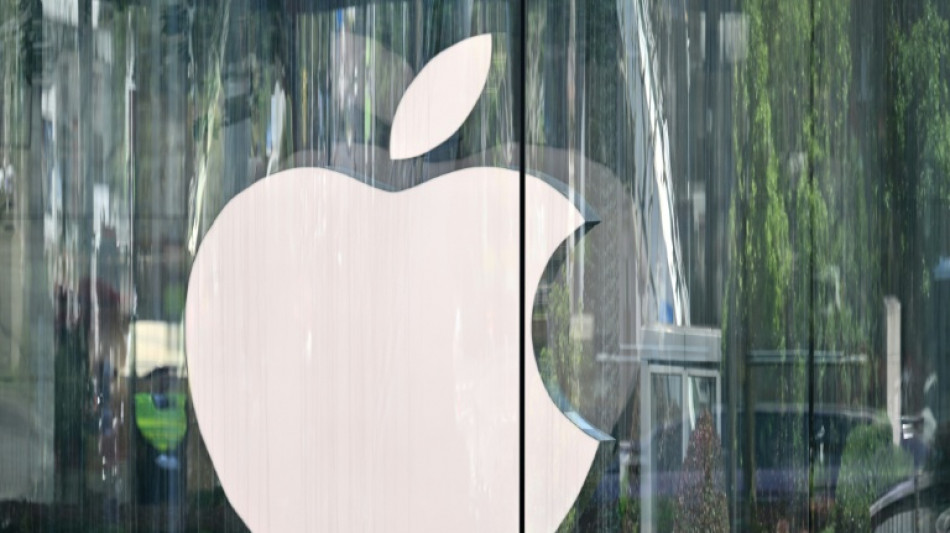

Apple eases App Store rules under court pressure
Apple on Friday relaxed its App Store payment rules in the face of a scathing court order, with Spotify quick to reap the benefit.
Apple's update to its App Store guidelines let developers know they could now provide links to outside payment platforms, allowing people to buy apps featured in its US online shop without paying through the App Store.
The rule change came just two days after a US judge accused Apple of defying an order to loosen its grip on the App Store payment system to the point that criminal charges could be warranted.
Music streaming giant Spotify said Friday that Apple had approved an update "that will finally allow us to freely show clear pricing information and links to purchase" in its app in the US App Store.
"In a victory for consumers, artists, creators, and authors, Apple has approved Spotify's US app update," the Sweden-based service said in a post on X.
"Today represents a significant milestone for developers and entrepreneurs everywhere who want to build and compete on a more level playing field."
Epic Games chief executive Tim Sweeney shared the Spotify post along with a message of congratulations for it "being the first major iOS app to exercise its court mandated right to do digital commerce with customers free of Apple obstruction, interference, and the Apple Tax!"
US District Court Judge Yvonne Gonzalez Rogers found that Apple "willfully" violated an injunction she issued at trial, with the company instead creating new barriers to competition with the App Store and even lying to the court in the process.
Gonzalez Rogers ordered the injunction be enforced.
An Apple spokesperson told AFP it strongly disagrees with the judge's decision and will appeal to a higher court, but would comply.
- 'Junk fees' -
Fortnite-maker Epic launched the case in 2021 aiming to break Apple's grip on the App Store, accusing the iPhone maker of acting like a monopoly in its shop for digital goods and services.
After a trial, Gonzalez Rogers ruled that Apple's control of the App Store did not amount to a monopoly, but that it must let developers include links to other online venues for buying content or services.
Apple's response to the trial order included new barriers and requirements including "scare screens" to dissuade people from buying digital purchases outside of its App Store, the judge concluded.
"Apple's 15-30 percent junk fees are now just as dead here in the United States of America as they are in Europe under the Digital Markets Act," Sweeney said in a post on X.
The act, which went into effect last year in Europe, requires Apple and other US tech giants to open up their platforms there to competition.
- Courting developers -
Apple has made a priority of building up its services business as the Silicon Valley titan tries to reduce its reliance on iPhone sales for revenue.
The unit, which includes Apple's television and music streaming services along with iCloud data storage and App Store income, now accounts for more than a quarter of the company's revenue.
The App Store changes include letting app makers use alternate payment systems free or charge or commission, according to Apple.
"Whatever revenue Apple was getting, it is not worthwhile for them to continue to look as if they don't have the developers best interest at heart," said Creative Strategies analyst Carolina Milanesi.
Apple will be courting app makers at its annual developers conference in June.
"There's still a lot of revenue coming in from subscriptions, iCloud and more, so this is not the end of the App Store being a good source of revenue for Apple," Milanesi said.
Most apps in the App Store make their money from ads, and Apple shares in that revenue, according to the analyst.
"And for smaller developers, the App Store is still the best way to reach consumers without having to invest the kind of money that an Epic Games or Spotify can invest in setting up alternative payment methods," the analyst added.
J.Hoffmann--NRZ




